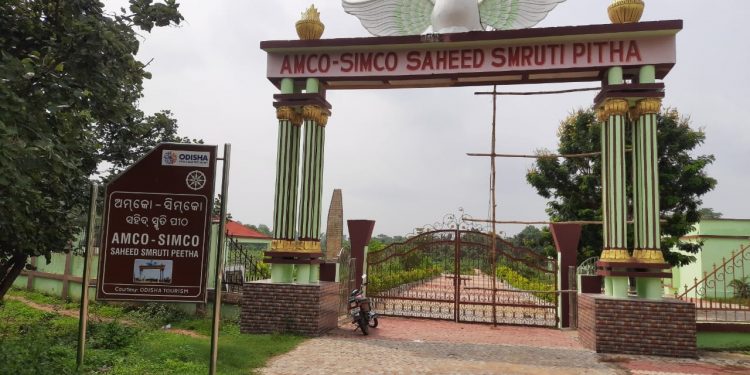Rourkela: If history is generous, one is hero and if history is cruel then one is pushed into the abyss of time. The case in point is Amco-Simco firing where more than 50 tribal people died, according to the erstwhile British government data.
Eminent historian Prabhat Mallick says, “This was one of the cruelest suppression of tribal uprising. Over 5,000 tribals had gathered to demand relaxation in the levy. The levy was imposed by the caretaker queen of Gangpur estate. And they were fired mercilessly at Amco-Simco. The official record is just a bluff and the actual number would be much more.”
It was 1939 when the tribals of Gangpur were up against the taxation policy of political agents. The tribals were united under the leadership of Nirmal Munda. April 24, 1939, the caretaker queen promised to relax the heavy tax and asked all to gather at AmcoSimco village near Raibaga.
Meanwhile, April 10, the police tried to arrest Nirmal on some pretexts but failed due to severe tribal opposition. So, the announcement was made by the queen a day before the massacre. On the other hand, political agent Lieutenant EW Marger was hatching a sinister plan to break the agitation.
Tribals of nearby villages had assembled at Amco-Simco April 25, when a large section of armed police surrounded the house of Nirmal Munda. An enraged Marger asked, “Who is Nirmal Munda?” and the answer from the crowd of over 5,000 came in unison – “Moye Nirmal Munda” (I’m Nirmal Munda). Marger, while entering Munda’s house, was hit by a bamboo stick from the thatched roof. Believing that someone attacked him, Marger pierced the stomach of one Mania Munda who died on the spot. Mania’s son saw this and attacked Marger.
British police officer Bosco, who was leading the forces, blew his whistle. The forces took this as a signal to open fire and they sprayed bullets on the unarmed tribals for three minutes. According to the British government data, 48 tribals lost their lives and 82 were injured.
Twenty-one days after the massacre, Nirmal and his associates were arrested and lodged in Jasipur jail. He was released from prison after independence. In 1957 general election, he contested from Panposh and Bisra and was elected as MLA while in 1971 the government honoured him as a freedom fighter.
However, many here feel that Amco-Simco has not got its fair share in history as that of Jallianwala Bagh.
Rajesh Mohanty, OP






































